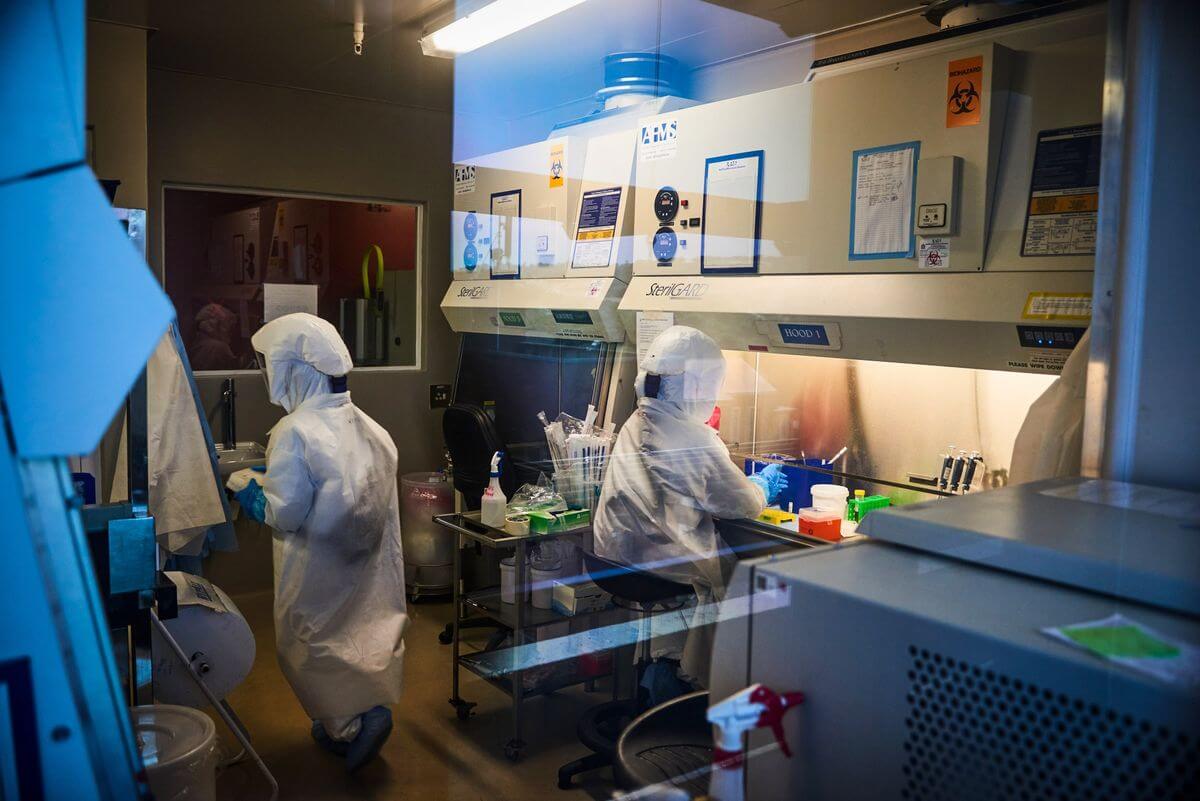We cannot afford to keep gambling with our biosafety. To do so is to set ourselves up for intergenerational consequences; needless to mention, the current crises are being exacerbated. Genetic modification and other new technologies, including gene editing and synthetic biology, which are applied in agriculture, require critical evaluation for their implication not just on human/animal health but also on ecosystems and the rights of our people.
Biosafety encompasses the actions, systems and policies that protect humans and environments from exposure to harmful biological agents. In agriculture, it involves the precautions taken to control the cultivation and distribution of genetically modified (GM) crops and products.
Nigeria is a key actor when it comes to GMOs Biosafety. She signed the Cartagena Protocol on Biosafety in May 2000 and ratified it in October 2003 in commitment to Global Biodiversity Management. However, questions remain over the implementation of the principles of biosafety, the continuous assessment of the implications of products of genetically modified organisms on the people/environment and the level of awareness of the public on the subject.
The Nigerian Biosafety Management Agency Act came into force on 18 April 2015, in the last days of the administration of President Goodluck Jonathan. That Act mandated the setting up of the National Biosafety Management Agency (NBMA), saddled with the responsibility “for providing regulatory framework, institutional and administrative mechanism for safety measures in the application of modern biotechnology in Nigeria with the view to preventing any adverse effect on human health, animals, plants and environment.”
Since then, a plethora of genetically modified organisms (GMO) products has been approved for release in the country. According to our report on the State of Biosafety in Nigeria, as of November 2020, the NBMA had issued nineteen permits for introducing GMOs into the country – eight for field trials, nine for direct use as food and/or feed processing and two for commercial release. GM Cowpea (beans) and GM Cotton were approved for market placement in 2019.
In 2022, two permits have been issued: one for a field trial of genetically modified potatoes and the other for the commercial release of the HB4 wheat.
These products are approved with very little public knowledge, and where rigorous assessments are done and objections made by concerned organisations/individuals, they are neglected. So far, this NBMA has acted more like a promoter of GMOs than as a regulator.
One case of focus today will be the genetically modified wheat (HB4 Wheat) approved in July 2022. Approval was granted to the applicant (Trigall Genetics S.A.) merely a month after the application was received. No risk assessment document is available on the website of NBMA or the Biosafety Clearing House as of 25 July 2022.
Although it is claimed that the application is for commercialisation and not for the cultivation of the wheat, there is no guarantee that the GM event will not get into the hands of local farmers and contaminate indigenous varieties. The applicant states, “In the unlikely case of accidental release, risks to humans, animals and the environment are similar to the ones produced by conventional wheat.” This doesn’t make sense as they also say that the “traits found in the GM wheat event are not available in non-GM form of the crop.”
The HB4 wheat was engineered to tolerate glufosinate ammonium, which is more toxic than glyphosate. There are thousands of cases in the USA of cancers resulting from the use of glyphosate. Residues of glufosinate in the wheat event pose a direct threat to human and animal health. In the likely event that this wheat is planted by farmers, soil and water will be contaminated from intensive use of the glufosinate chemical. Although the wheat is self-fertile, it can cross-pollinate at a rate of up to 14%, meaning that the HB4 genes will spread to and contaminate other wheat varieties.
These concerns with the HB4 wheat are common to the other GM products approved in the country. Some GMOs are modified to act as pesticides (Bt Cowpea, approved for commercial release in 2019, is already being distributed to farmers). We may have already started eating a pesticide in the name of beans. GMOs have economic, environmental, and health implications that we cannot keep a blind eye to: loss of farmers’ rights to save, reuse and exchange seeds, erosion of biodiversity, loss of indigenous varieties, the advent of super pest/superweeds, the toxicity of water, soil degradation, immune system disorders, liver and kidney problems, cancers.
The right to safe and nutritious food is a universal right. GMOs challenge that right with the creation of novel organisms, dependence on toxic chemicals and abridgement of farmers’ rights to preserve and share seeds and stay free from contamination by genetically engineered seeds.
The NBMA Act 2015, which mandated the setup of the Agency, has several fundamental flaws that make it impossible to protect the interests of the public and avert the negative implications of GMOs on our health, economy, and environment. The gaps include:
- Lack of access to information.
- No provision for adequate stakeholder engagement or consultation and participation.
- Defective provision for liability and redress.
- Subjective decision-making.
- Skewed provisions for appeals and reviews.
The law uses slack terms such as “may” rather than “shall”, therefore bestowing enormous discretionary power on the Agency. These loopholes create room for abuse of administrative powers and make allowance for gross injustice against the people of Nigeria and the environment.
Today as we discuss the issues surrounding GMOs and biosafety, we hope you (Agency) will focus particularly on the NBMA Act and see if the Agency as constituted is wired to serve the best biosafety interests of Nigeria or if it should be fundamentally reviewed.
We hope that you, as legal experts, consider if there are issues of conflict of interest in a setting such as that of NBMA, where board members such as the National Biotechnology Development Agency are promoters of the risky technology and are also applicants that have benefited from the very first application to have come before the Agency.
We hope that you will examine the implications of GMOs and advise whether they obstruct avenues for safety, justice, fairness, probity, and equity in our collective struggle for a food regime that ensures that we are not turned into guinea pigs by those pushing to colonise our food systems and expose us to avoidable risks.
This article was first published in https://nnimmobassey.africa with permission granted to Prime Progress to republish.
The article stresses the critical need for stringent biosafety measures to mitigate the intergenerational impact of genetic modification technologies such as GMOs, gene editing, and synthetic biology in agriculture. It highlights Nigeria's involvement with the Cartagena Protocol on Biosafety and the establishment of the National Biosafety Management Agency (NBMA) in 2015 to regulate GMOs and ensure human, animal, and environmental safety.
The article points out several concerns regarding the NBMA's role, including the approval of numerous GMO products with limited public awareness and inadequate risk assessments. Specific examples include the approval of GM Cowpea and GM Cotton in 2019 and HB4 Wheat in 2022. It criticizes the NBMA for acting more like a promoter of GMOs rather than a regulator.
Additionally, the article identifies fundamental flaws in the NBMA Act, such as lack of access to information, insufficient stakeholder engagement, defective liability provisions, and subjective decision-making, which collectively undermine the biosafety framework. It calls for a thorough review of the Act to safeguard public health, environmental integrity, and farmers' rights.






